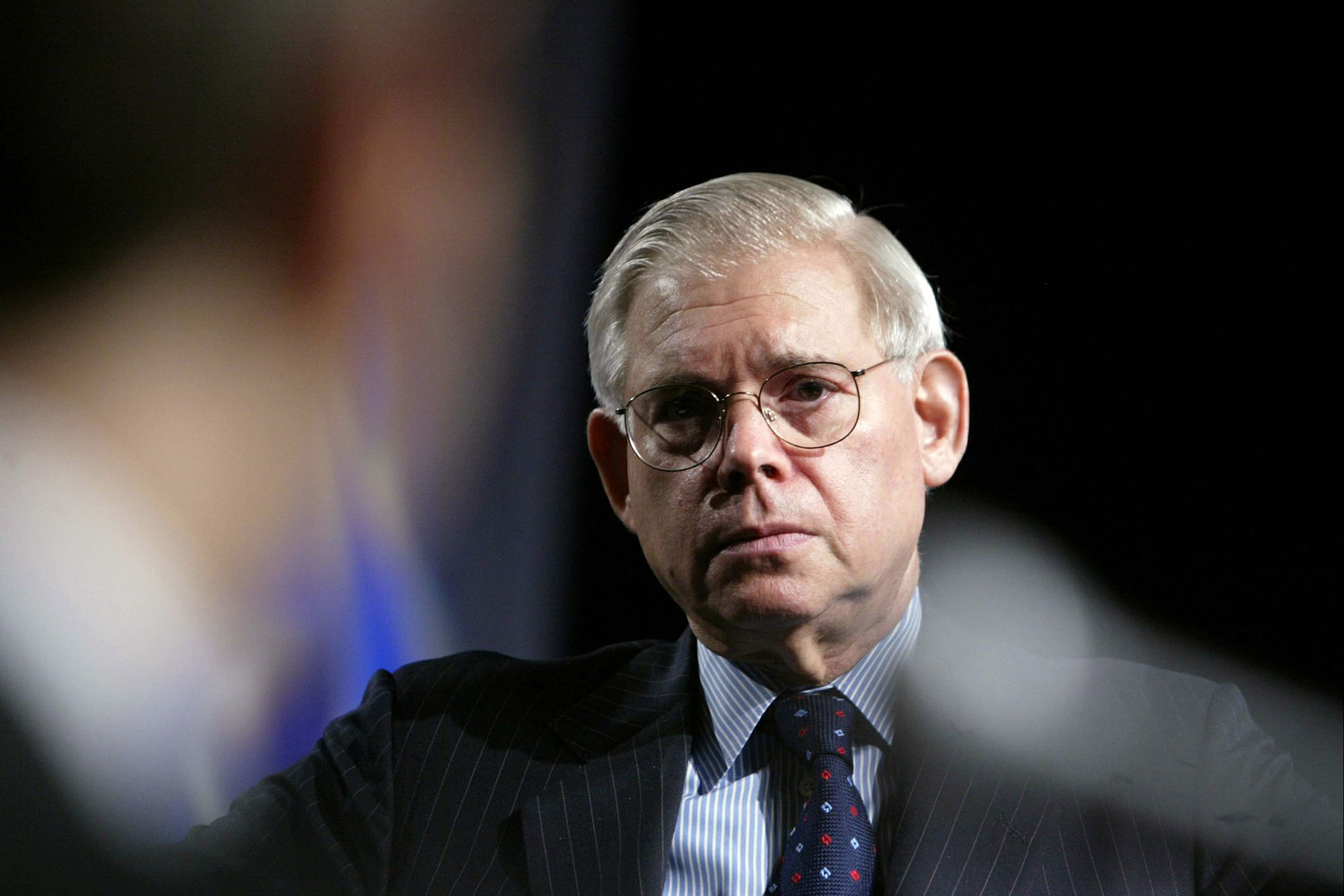
During his Harvard career, Robert Glauber was a professor at the Business School for two decades, on faculty at Harvard Kennedy School, and a visiting professor at Harvard Law School.
Brendan Smialowski/Bloomberg via Getty Images
Harvard economist Robert Glauber dies at 81
Helped analyze the ’87 stock market crash and resolve the savings and loan crisis
Robert R. Glauber, a Harvard economist who straddled the worlds of academia and public service, has died at age 81.
In 1987, Glauber served as executive director of what became known as the Brady Commission, the task force appointed by President Ronald Reagan to report on the October 1987 stock market crash. Nicholas Brady, the Wall Street securities executive who chaired the panel, later became Treasury Secretary in the George H.W. Bush administration and invited Glauber to join his team as undersecretary for finance. There Glauber led negotiations in resolving the savings and loan crisis and also proposed an ambitious, though ultimately unsuccessful, reform of Depression-era restrictions on bank activities in the financial sector.
He subsequently served as chief executive officer of the private-sector regulator of U.S. securities markets (then known as the National Association of Securities Dealers and now called the Financial Industry Regulatory Authority).
Before his public service, Glauber, a New Yorker and 1961 graduate of Harvard College, had been a professor of finance at Harvard Business School for more than two decades, joining the faculty after receiving his doctorate there in 1965. He returned to Harvard in the 1990s, sharing his deep experience in financial regulation with students as a member of the Harvard Kennedy School (HKS) faculty. He also served as a visiting professor at Harvard Law School.
Friends and colleagues remembered him for his collegiality and his devotion to those he was mentoring.
“As a teacher, Bob was known for his ability to help his students think more clearly and for his devotion to them,” said Doug Elmendorf, dean of HKS and Don K. Price Professor of Public Policy. “He was always willing to spend time with students and to encourage them in their lives.”
IBM Professor of Business and Government Roger Porter, who worked with Glauber in the Bush administration, said: “Sometimes those in departments seek to control rather than to consult … to be in charge and to be seen as in charge. Bob chose the path of consultation and cooperation rather than confrontation and contention. He shared and disclosed rather than hid and obfuscated. It was a joy to work with him.”
One of his last projects, which knit together his academic training and values, was the non-profit American Exchange Project, a high school exchange program that allowed students from all walks of life to understand one another, make friends, and ultimately host each other for several weeks.
Glauber passed peacefully at his home on Feb. 14. He is survived by his wife, Barbara, and children Alexander and Amelia and their families.




